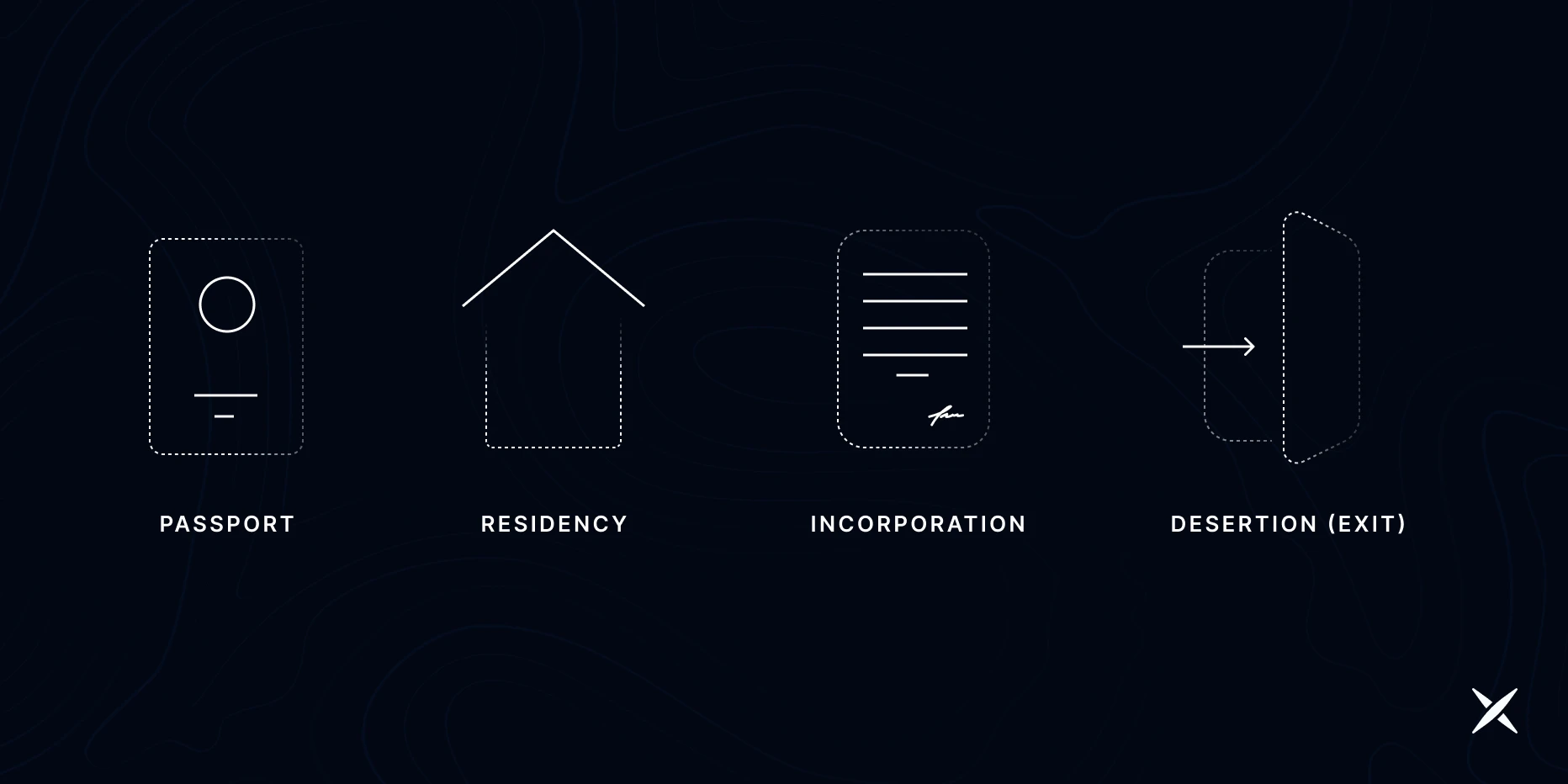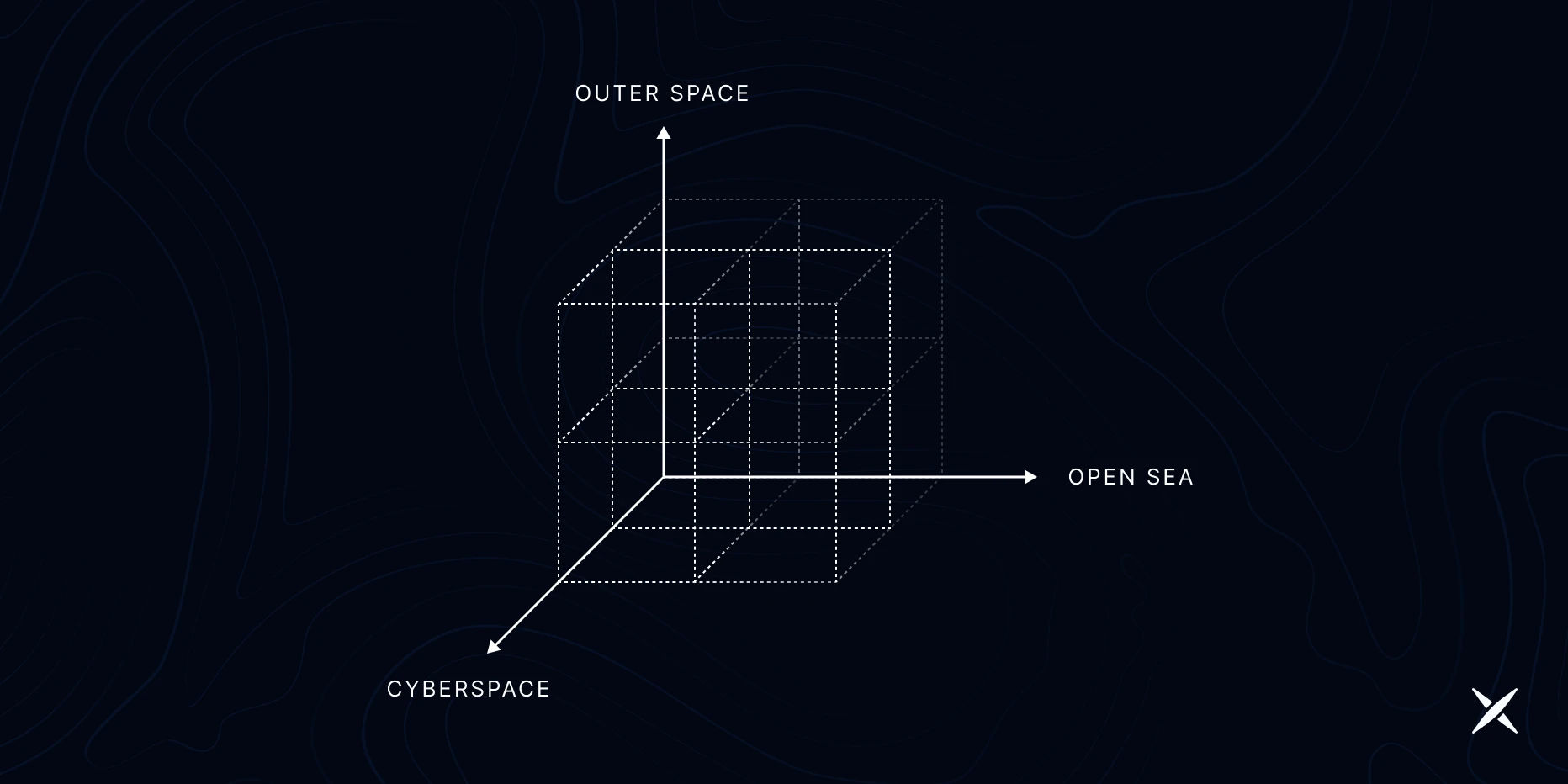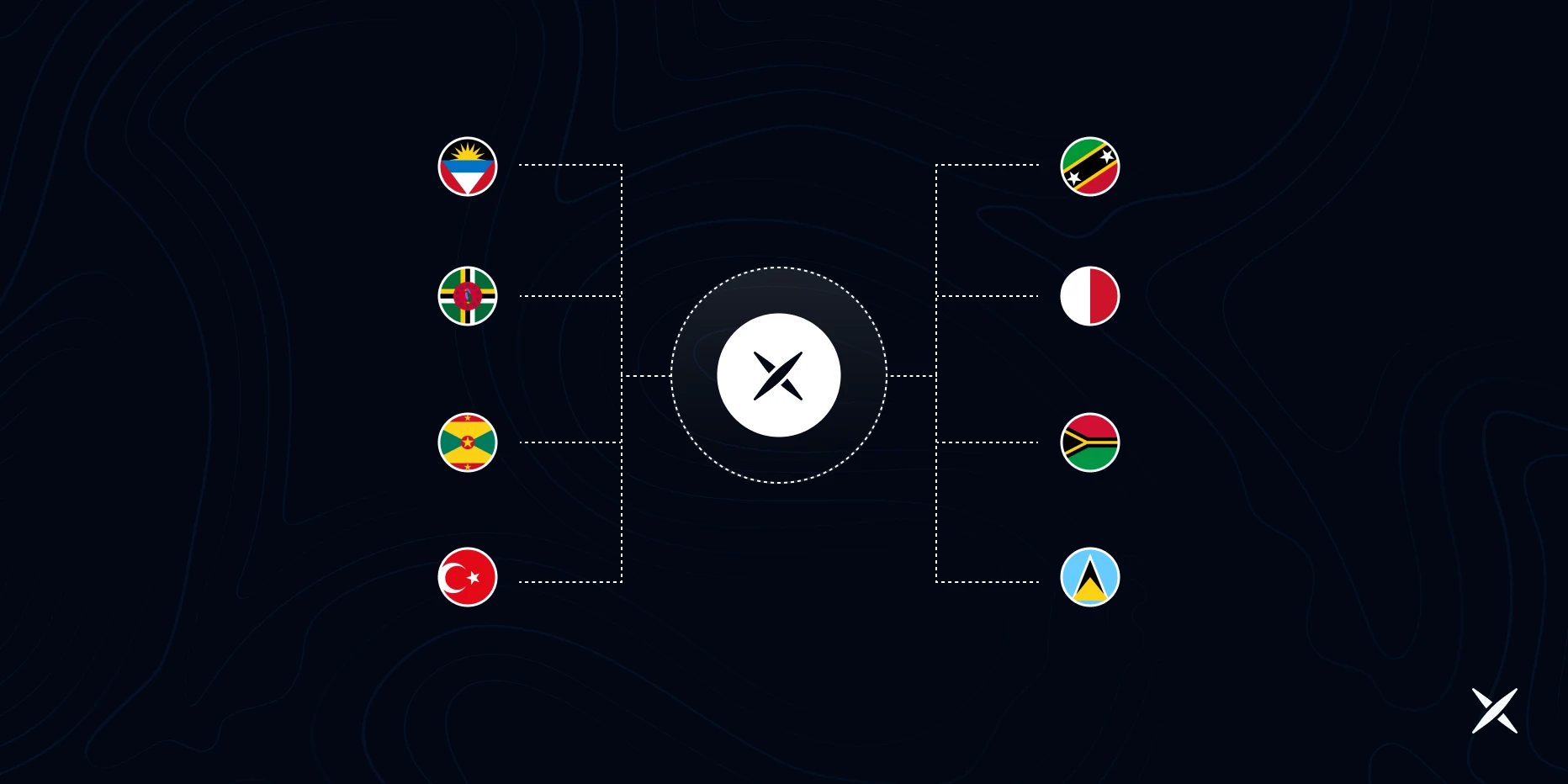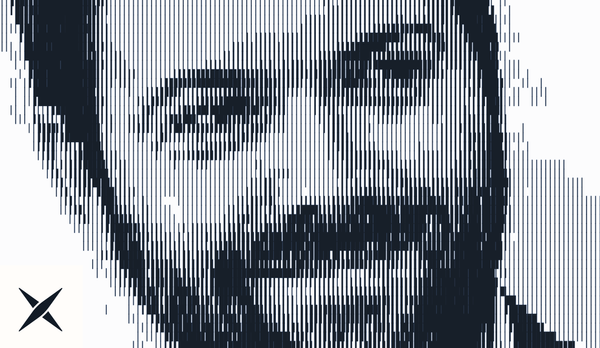Hello, world. It’s a pleasure to meet you.
We are excited to introduce you to CitizenX, the very first product designed by The Network State Company.
CitizenX is the world’s first platform to find and fund places that welcome you as a citizen. Today, CitizenX helps you diversify your passport portfolio, so you can secure a safe haven, travel freely across the globe, and discover your new values-aligned home(s). But CitizenX has a broader mission that entails creating a seamless and holistic citizen experience — ranging from passports to residencies and business incorporations.
By doing this, CitizenX aims to create the future of citizenship for a more prosperous, free world — contributing to the transition from monolithic nation states to the network state.
“A network state is a highly aligned online community with a capacity for collective action that crowdfunds territory around the world and eventually gains diplomatic recognition from pre-existing states.”
Balaji Srinivasan — author of The Network State
To create the future of citizenship, we must think and operate on a global scale from day one. CitizenX is symbiotic but independent of any single nation state, as we believe this is the most effective path to helping the sovereign individuals of the world.

Why care? Because citizenship is an asset.
In a world where our science and technology have leaped forward so much, human potential is still bound by ancient borders and geopolitical instabilities. Where and when someone is born — and to who — have a disproportionate influence in someone’s life path.
Having just one passport creates a clear opportunity cost as it determines where you can live, but more importantly, it determines whether you can leave. There are some associated risks:
- Political instability — the decisions of your government can impact your freedom of movement, settlement rights, and military involvement.
- Financial crisis — high inflation, banking collapses, and citizenship-based asset seizure are increasingly feasible scenarios around the globe.
- Tax burdens — unpredictable or punitive policies, such as draconian taxation.
- Career ceiling — being a citizen of one place may preclude you from capitalizing on opportunity in others.
- Travel restrictions — preventing you from visiting more of the world.
“The real problem of humanity is the following: We have Paleolithic emotions, medieval institutions and godlike technology.”
Edward O. Wilson — American biologist, naturalist, ecologist, and entomologist
For almost 1,000 years, the structure of nation states has remained unchanged. These institutions are increasingly incompetent service providers, failing to supply the modern currency, education, healthcare, and technological options to make us, and them, blossom.
At the same time, these legacy nation-states keep increasing their prices (taxes) while attempting to lock in their customers (citizens). It makes sense: there are extremely high switching costs (between countries) and, therefore, low competition. We, the citizens, are suffering the consequences.
The Sovereign Individual’s spot-on prediction
William Rees-Mogg and James Dale Davidson’s 1997 classic non-fiction book forecasted that in the information age, power structures are moving away from the nation-state and to the individual. The era of competitive governance is here, and individuals can now assert microeconomic leverage over jurisdictions.
Capital has historically been the universally accepted currency of freedom. This has become increasingly true thanks to the proliferation of cryptocurrency, a decentralized and permissionless alternative to the traditional financial system. This technology has also enabled people to organize outside of traditional organization structures with DAOs.
“Crypto enabled us to start Aragon, popularizing DAOs. Aragon enabled thousands of people to work together and manage $20bn over the internet. It’s not just about technology, but about fundamental rights — such as the right to work — regardless of borders. We are bringing the same energy to citizenship.”
Luis Cuende — President and co-founder of CitizenX
But permissionless money only gets us so far. We remain limited in the physical world by our passports – with no easy way to exit because of the monopoly on violence (you can’t cross a border with a passport that is not recognized by the officers who hold guns).
“Cash in king, but passport is queen.”
Balaji Srinivasan — author of The Network State
This is especially relevant in a multipolar world, with several serious global powers. We are witnessing the end of Pax Americana, and the free world is getting smaller, as surveillant states and draconian tax practices become par for the course.
“The critical question then becomes one of means, of how to escape not via politics but beyond it. Because there are no truly free places left in our world, I suspect that the mode for escape must involve some sort of new and hitherto untried process that leads us to some undiscovered country; and for this reason I have focused my efforts on new technologies that may create a new space for freedom.”
Peter Thiel — co-founder of PayPal
The three dimensions of freedom: open sea, outer space, and cyberspace

Open sea refers to a future of settling the oceans or sea-steading, outer space implies an interplanetary life, perhaps on Mars, and cyberspace suggests freedom from governmental control online. We are building a major piece of infrastructure in the latter (cyberspace) that will enable new physical frontiers. A fourth dimension, if you will.
To create a new space for freedom, the first step is creating tools for individuals to diversify their citizenship across multiple values-aligned countries (citizen-country fit). We believe the missing piece is a network to efficiently market the best governance products (be it a passport or residency) from the remaining enclaves of freedom.
Many of the most talented and wealthy individuals are flocking to jurisdictions with more favorable conditions. But, at the same time, many end up stuck at the mercy of local politicians ruling highly-bureaucratic tax-abusive, anti-freedom, legacy nation-states because there is no easy way to get around these bureaucratic monolithic systems. And in a world where citizenship is tethered to archaic states with outdated practices, the (citizenship) industry's state of the art remains equally outdated.
The Archaic State of the Art.
Capitalizing on this global reality, since the 1980s more than 30 forward-looking countries have created programs that allow individuals to acquire citizenship or residency rights in that country in exchange for making an economic contribution.
The benefits of such programs are significant and broad: travel freedom, tax savings, job opportunities, safety, stability, lifestyle improvement, and prestige, to name a bunch. Unfortunately, applications for these programs are frustratingly complex. Governments hired lawyers and consultants to make sure their programs were iron-clad, but they certainly did not prioritize ease of use nor accessibility. In fact, the people who built the programs made them complex by design, so they could “double dip” and cash in on future applicants needing guidance.
The birth of an industry called investment migration created a set of legacy solutions, which remain stuck in the 20th century.
Some decades later, Estonia pioneered an “e-residency” program, the first of its kind, offering a government-issued digital identity to give global entrepreneurs remote access to the country. Palau quickly followed suit with a digital residency program of their own. Most recently, El Salvador launched their “Freedom Visa” targeting crypto entrepreneurs and high net worth individuals. However, the benefits of these solutions are limited to the (one) underlying jurisdiction. You still have a single point of failure — an incremental improvement, at best.
Fully network solutions intend to become network states, but are simply not there yet. Their primary hurdle is receiving international recognition. Without a country partner, meaningful benefits are minimal, closer to a “cool kids’ club” than a real passport solution.
Fortunately, the technological boom of the 21st century has birthed powerful APIs to provide a smooth way to interact with countries, cryptographic signatures provide a verifiable way to check ownership, and cryptocurrencies provide an fast and secure way to move capital around the world. Some countries are leveraging these technologies to create local solutions — they clearly understand that this not a zero-sum game. It's time to change the state of affairs and create the first citizen-centric experience.
Enter: CitizenX — the future of citizenship.
“Liberty consists in the division of power. Absolutism, in concentration of power.”
Lord Acton
CitizenX is the world's first platform to discover and join countries that welcome you as a citizen. We help you diversify your citizenship, because we believe that passports are the ultimate currency of freedom. We are creating a way to see and be in the world that would not be possible otherwise. Starting here, with a completely reimagined citizenship experience.
A seamless and simple citizenship experience lowers the barriers to entry in the market of countries, increasing accessibility and optionality of citizenship — giving you back control over your money, choices, and destiny.
One great thing about investing in citizenship is the possibility to do it from anywhere in the world.
We imagine a world where citizens show their preferences by voting with their feet, aligning incentives with governance producers, and creating a liquid market of capital that policy-makers can unlock by providing the right incentives to soon-to-be citizens.
All your passports, residencies, and companies in one seamless citizen experience.
We believe in a citizen-centric experience, where the focus is on you, the individual. The fundamental problem with government-built platforms for investing in citizenship is that they're focused on one specific country, and how it can benefit from the citizens, residents, or business owners. We believe that, in the 21st century, the individuals have the leverage. Countries should compete for the best citizens. The only way to do this is by enabling people to manage their location and allocation.
CitizenX enables you to interact effortlessly with one or many jurisdictions, creating and managing “citizen profiles” with multiple nations through a single sign-on. This personalized, plug-and-play approach significantly reduces the friction and marginal cost of getting a new citizenship, as well as lock-in risk – so you don't depend on a single country.

This approach also makes it easier to offer new governance solutions to citizens willing to put their capital where their mouth is. Additionally, countries can connect with their diaspora, and values-aligned citizens can connect with each other organically.
As Balaji explains in his book, aptly named The Network State, to create a network state you need a network of enclaves with some sort of sovereignty. We believe the way to achieve this is to first create the network of citizens, then aggregate demand for new governance products, such as special economic zones and other enclaves, by using the joint bargaining power of individuals to negotiate with jurisdictions that are open doing business.
Simply put, we are:
- Helping citizens allocate their capital and relocate to values-aligned locations
- Building relationships with those host governments, providing alternative funding via foreign direct investment by leasing sovereignty (issuing citizenship or selling land), instead of raising debt via the IMF.
CitizenX is creating the future of citizenship, to help you join values-aligned countries, that unlock foreign direct investment, and aggregate demand to kickstart new enclaves and create a more prosperous, free world.
The masterplan:
- Create the world's first citizenship experience
- Reinvest into seamless residency and company incorporation options
- While doing the above, also creating new governance solutions in partnership with forward-looking countries
Don't tell anyone.




